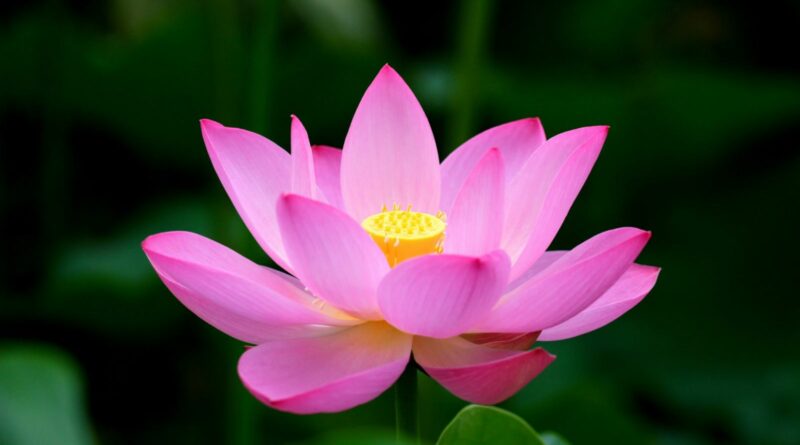Why Dukkha
At the root of all our suffering, there is always some attachment. There is always some craving. Let us try to understand the desire more thoroughly, more completely and at greater depth.
We are forever experiencing an infinity of cravings. We see a form with our eyes which seems beautiful, and our desire is simulated. We hear something, we smell something, taste something, touch something tangible which is pleasant, and at once desire it. Our attachment raises its head. Similarly, when we recall some sense pleasure which gave us intense pleasure, we at once become desirous of experiencing it again. Or if we imagine some sense pleasure which we have not so far experienced, then the craving to experience it again manifests itself.
The desire for this objects of these six senses is defined as Kamātānha, sense-desire. Kamātānha arises because the objects of the senses make us restless. When the fire of these desires combines with the petrol of envy, then its intensity increases many fold, with the result that our suffering as well becomes great.
Let us understand this phenomenon with the help of some examples.
I bought an Indian-made car. Now I wanted this car to be a bit better than other cars on the road, so I installed a radio, tape player, eight or ten lights (even though they served no useful purpose), beautiful foam rubber seat covers and many other gadgets. The car was now decked out like a newly-wed bride and I was really pleased with it. In the evening, I drove to a public meeting in my shiny new automobile and saw that Daboo Bhai was driving a big Impala and had also come to attend this function. His chest was puffed with the pride owning this big automobile, he was wearing an ear to ear smile with his nose up in the air; he was enumerating one by one the super-special features of this latest model American car. When confronted with this, all my hopes were dashed to the ground, the dark clouds of disappointment started casting their shadows over my entire being. Look at this big one hundred thousand rupees worth of an imported car and look at my Indian-made jalopy! All the get-up of the car began to look like dirty nickel. My mind was brimming with frustration. Returning from the function, it was hard to ride in this car again. The plush seats stung like thousand scorpions, the rattle seemed to tear my eardrums. What a tin-pot!! Merely a contraption of tin! My mind, filled with dissatisfaction, began to dream of some latest model of Impala, Cardillac, or Mercedes-Benz and every available pleasure of life lost its savour. What an inferiority complex overcame me. Poor me! What a destitute, what an utter failure. What was life after all without an imported car?
Another example : Mohini got really dressed up today. The expensive Nylon-Georgette sari that she had bought only yesterday she wore to a party at her friend’s house. She was full of secret hopes that today, because of her sari and looks; she would be centre of attention at the party. Everyone would admire her. But what she saw there dashed all her hopes to the ground. Sohini was the centre of attraction there and her chiffon sari which her husband had just brought from Hong Kong was really fantastic. Wowl The very latest design! Perhaps the Indian ladies have not even seen it vet, let alone their owning or wearing one like it. Sohini’s sari made Mohini a miserable wreck. The poor girl started languishing with inferiority. The expensive sari that she had joyfully worn to the party now began to prick her with millions of thorns. When she came home, she lost her appetite and could not sleep. Her wardrobe was packed with expensive saris, but today all her saris in comparison to Sohini’s seemed like rags.
Neki Ram is a petty officer in the local Civil Supplies Department. In these days of inflation, although he is unable to save much, somehow, with his salary, he is able to look after his family by living frugally. One day he went with his wife to dine at the house of Santoshi Ram who is his colleague. The lavishness and splendor of the house that he saw dumbfounded him. Santoshi Ram had a flat with four spacious rooms, fully furnished. The drawing room was decorated with items of Indian and foreign origin; there was radio, a television, refrigerator; the bedroom was air-conditioned. What a feeling of prosperity and comfort was in the air! Neki Ram saw all this and could not believe his eyes. He thought: “Santoshi Ram holds the same post as I do. He has amassed all these comforts through illegal gratification, and look at me. I remained with my foolish virtue of honesty.” When they returned home, his wife too gave him a piece of her mind for his stupidity. Every creature fills his belly, but one has to live with some dignity, live a bit better than the average. All night his eyes were like a movie. Thus, the poor couple lost all their peace and became miserable.
Lakhotraji gave a dowry of five hundred thousand rupees for the marriage of his daughter. Twenty thousand was spent in decorating the marriage hall. Hundreds of guests were invited to the reception. The most expensive confectionary available in the city was served. Lakhotraji was puffed up with pride at the lavish performance. No one had so far celebrated a wedding with such splendor and lavishness. Indeed, he was pleased. A few months later, Katorimal gave away a dowry of ten hundred thousand rupees for his daughter’s wedding. Fifty thousand was spent in decorating the hall. Thousands came for the reception. Not the best sweets of Bombay were served, but the best sweets from Delhi and Calcutta were flown in for the marriage party. The marriage was applauded so much that poor Lakhotraji had a heart attack.
Such incidents are very common in every one’s life. For what we do not possess, there arises a strong craving. We get only dissatisfaction from what we have. Where there is clinging, there is dissatisfaction, and where there is dissatisfaction, there has to be clinging. Dissatisfaction with what is and craving for what is not, both these keep one miserable. Dissatisfaction is misery and so is clinging. Why am I inferior to others? The inferiority complex and envy keep me unhappy. Why should anyone be better than me? This trait of envy keeps me in woe. Why should I not be like others? This mad craving keeps me unhappy.
Why should anyone be better than me? This trait of envy keeps me in woe. Why should I be just like everyone else? I must excel and be better than them. This is the Dukkha of this mad ambition. Just as discontentment is Dukkha, so is the pain of clinging.
Even if we realize the suffering of greed and clinging at an intellectual level, still we could not come out of this misery by means of such intellectual knowledge. Throughout life, we have been involved in a spirit of greedy competition. Therefore it is not quite so easy to come out of this habit pattern. Right from childhood, the mother dressed up her baby and taught him to look prettier than other babies. In school, the spirit to do better than others in exams was instilled. In the playground, we were trained to come out on top in every event. Since youth, when we stepped into the life, the constant desire has been to get ahead of others. A common trait found in animals is to rush ahead of others; we human beings have adopted this as well. This characteristic affects our lives immensely. In the mad spirit of competition, life has become a free-for-all, the law of the jungle, survival of the fittest prevails. Life has become tense and full of restlessness, and inordinate striving. Ramas do not allow their brother Bharatas to come near their right to the kingdom and every Bharata is busy scheming how to rob his brother Rama of his right.
It is often argued that if there are no desires, no competition, then how can anyone have any incentive to work? How will people work harder? If people do not strive on harder, the production in the country will lag and there will not be any prosperity and happiness in the country. The argument seems plausible at first, but when we look at it more deeply, we realize its flaw. What, is the purpose, after all, of all those means of greater production? Of greater abundance? Are they not for happiness and well-being? But where do we find happiness and well-being in this rat race, when before we achieve the object of our desire, we are disturbed with discontentment. In our efforts to achieve, we lose the equilibrium of our mind. And having achieved, instead of enjoying the satisfaction of possession, we are still more agitated to acquire more, to hoard more.
What is the use of all such greater means of production? These means have taken us away from our objective. In the entire process of hectic striving, there is Dukkha in the beginning, Dukkha in the middle and Dukkha in the end. All such activity which in its beginning begets anxiety, restlessness, tensions, suffering, which brings more of these undesirable states of mind as it expands and which ends in more suffering – how could such material progress usher in an era of peace and prosperity?
This does not mean that householders should shun all material activity and spend their lives in poverty. Definitely not! Most certainly not! People must work to eliminate their own poverty as well as that of others too. Let them really work hard, but let them maintain a balanced mind while they are engaging in work. Let them not be restless or impatient. If, under the influence of attachment and craving, they were to lose their human dignity, peace and equilibrium, despite having amassed material wealth, they certainly would not have achieved any real happiness. To achieve real happiness, one must maintain equilibrium of the mind, reasonableness of the mind.
The disease of clinging and competition spreads like an infectious illness and constantly keeps on spreading throughout humanity. Mankind thus loses peace and tranquility. Even if one member of a certain family, which was united, content and loving, becomes the victim of this greed and clinging, despite of all efforts to maintain a peaceful, contented existence, the entire family begins to smolder in the fire of greed, tension and hatred. This hatred, this tension and greed are caught by one member of a family from another and the entire society in a short time becomes torn, becomes tangled. This results not only in the loss of peace for the individual, but also for the entire society. This inordinate competition and desire thus becomes the breeding ground for our misery, not happiness. Peace lies in keeping it at bay. Peace lies in keeping it at arm’s length, peace lies in keeping ourselves beyond the reach of the tentacles of inordinate craving and useless competition.
Source: https://www.vridhamma.org






